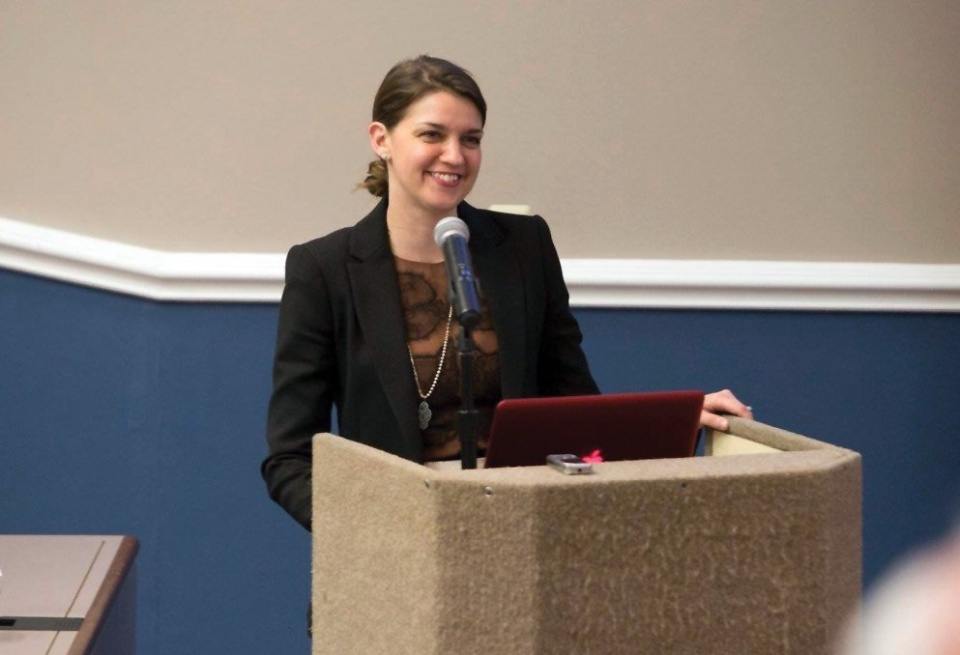Columbia College | Columbia University in the City of New York
Researching Nuclear Risk
“Social science meets Dungeons & Dragons” is how Jacquelyn Schneider ’05 describes the innovative war game she designed to assess if and how a cyberattack could lead to nuclear war.

Southern Methodist University
Unlike traditional war games used by the military, Schneider’s experimental game is academic. She’s testing for variables; specifically, whether a state’s access to cyber weapons or known vulnerabilities in its nuclear control program would stop or motivate it to use nuclear weapons. “I am always interested in how the human being interacts with the technology,” Schneider says.
Schneider’s game is more ambitious than most in its scope: It has been research deployed in several countries, including Norway, Argentina and Thailand. Professors at Cornell and the University of Wisconsin have also run the game with undergraduates, allowing Schneider to compare the results to those produced by players considered experts in crisis decision making. The early returns are heartening: “We’re finding that people tend to downplay their own vulnerabilities, which decreases incentives to use nuclear weapons,” says Schneider.
Schneider was first exposed to war games as an intelligence officer in the Air Force (she enrolled in ROTC to fund her studies at the College), a job that sent her to Japan and South Korea for six years following graduation. “I immediately used the knowledge from all the great courses I took in political science and economics,” she notes.
After leaving active duty in 2011, Schneider earned a master’s from Arizona State University and a Ph.D. from The George Washington University, both in political science. She’s still an Air Force reservist assigned to U.S. Cyber Command; prior to being named a Hoover Fellow last summer, Schneider taught at the U.S. Naval War College in Newport, R.I.
Last summer, Schneider was also appointed to the Cyberspace Solarium Commission as a senior policy advisor. Created in 2019, the bipartisan commission looks to develop a comprehensive U.S. cyber policy. Schneider’s first book, The Rise of Unmanned Technologies: Explaining the American Desire for Drones, co-authored with Julia McDonald of the University of Denver, is slated for publication in 2020.
“I want to do work that makes the U.S. safer and more prosperous,” says Schneider. “The puzzles that I’m drawn to — about cybersecurity, about unmanned technologies, about strategic stability — are things that we desperately need answers on.”
Nathalie Alonso ’08, from Queens, is a freelance writer and an editorial producer for LasMayores.com, Major League Baseball’s official Spanish-language website.
Issue Contents
Published three times a year by Columbia College for alumni, students, faculty, parents and friends.
Columbia Alumni Center
622 W. 113th St., MC 4530, 6th Fl.
New York, NY 10025
212-851-7852
cct@columbia.edu
Columbia Alumni Center
622 W. 113th St., MC 4530, 4th Fl.
New York, NY 10025
212-851-7488
ccalumni@columbia.edu

